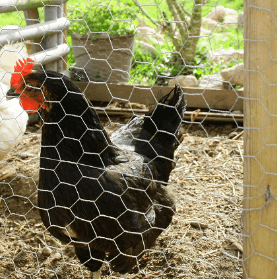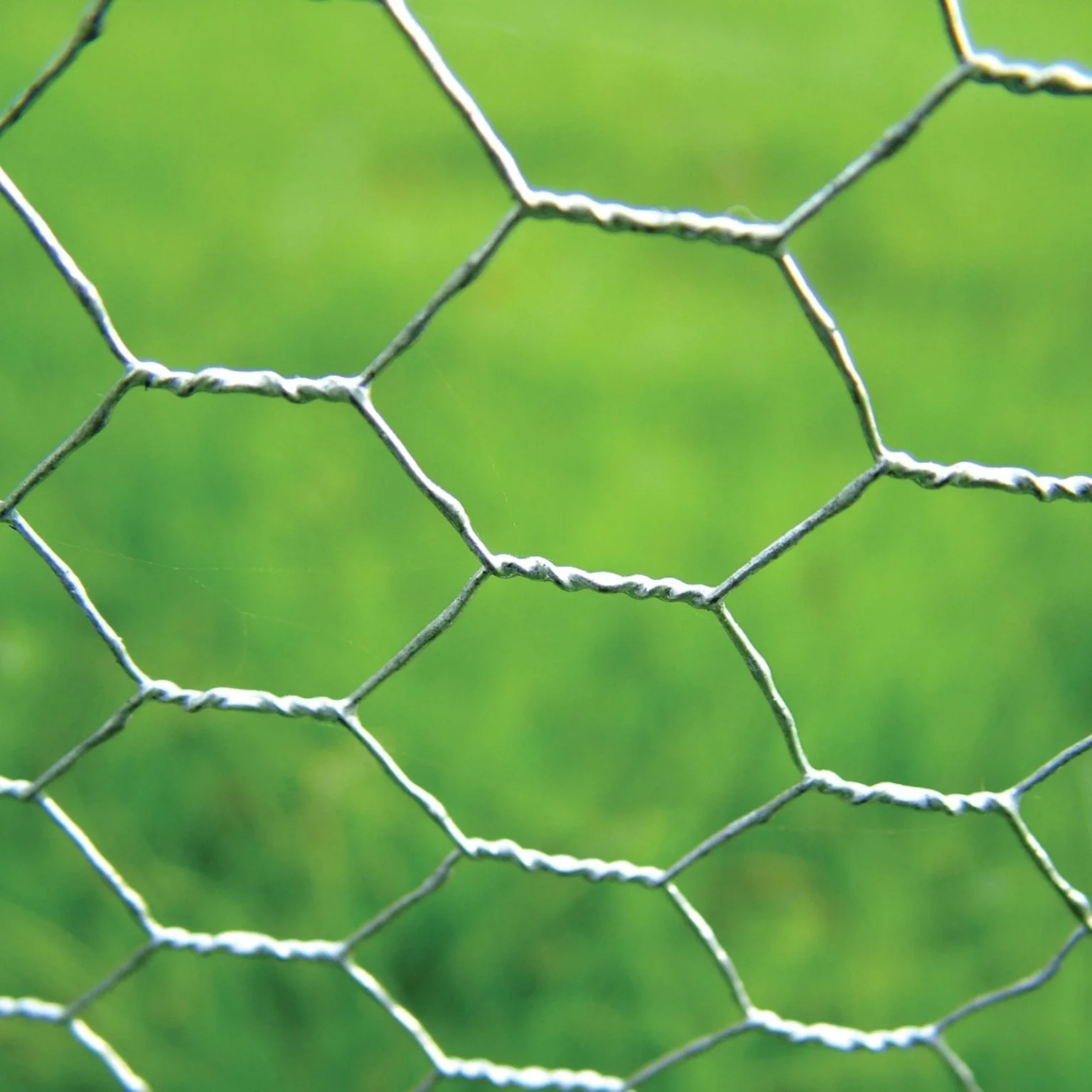Chicken wire, also known as poultry wire or poultry netting, is a type of galvanized wire mesh with hexagonal holes. This lightweight and flexible material provides a basic barrier for keeping animals in and predators out.
Chicken wire is perfect for lawn and garden fencing, cages, chicken coops and other projects.
Wire Cloth Man’s galvanized 20-gauge chicken wire has a reverse twist and is reinforced with a bee-line horizontal wire every 12 inches. Choose from two mesh sizes with a variety of width and length sizes. Each roll is separately packaged.

Our chicken wire offers various advantages:
Affordable: Chicken wire is an economical fencing option compared to other materials like wood or metal panels, making it ideal for large projects or temporary solutions without breaking the budget.
Easy Installation: Installing chicken wire requires only basic tools such as wire cutters and staples or ties. It can be quickly attached to posts or frames, allowing you to build enclosures or protective barriers with minimal effort.
Lightweight: Chicken wire is lightweight and easy to handle, transport and maneuver. This makes it practical for DIY projects, as one person can often install it without assistance.
Versatile: Chicken wire isn’t just for poultry enclosures; it can be used for various purposes, including garden fencing, compost bin walls, trellises for climbing plants and even crafting or home improvement projects like reinforcing insulation or creating sculptures.
Rust-Resistant: Galvanized chicken wire is coated to resist rust, ensuring durability even when exposed to rain, moisture and outdoor elements. This increases its lifespan and reduces the need for frequent replacement.
Customers often ask, “What’s the difference between chicken wire and hardware cloth?” Here are a few distinctions:

Rely on Wire Cloth Man to supply high-quality chicken wire whenever you need it. With over 100 years of industry experience between our team of experts, we have the skills and knowledge necessary to provide you with the perfect roll of wire for your application.
We offer a range of custom-fabricated products tailored to your precise wire mesh requirements:
With advanced machinery and expertise across Cutting, Slitting, Stamping, Weaving, and Welding departments, we ensure premium services and fast turnaround times. Our experienced manufacturing team emphasizes quality and attention to detail so we can deliver top-notch products at competitive prices.
Need chicken wire for your project? Find everything you need in our shop.
Chicken wire is a thin, flexible, galvanized wire mesh. It features a hexagonal pattern and is commonly used to create enclosures for poultry or small animals, lightweight fencing and garden protection.
To install a chicken wire fence, start by placing sturdy posts along the desired perimeter at regular intervals. Then, attach the chicken wire to the posts using staples or clips to ensure it’s tight and secure to prevent animals from getting in or out.
Chicken wire can last 5–10 years. This depends on the quality, exposure to weather, and whether the mesh is galvanized. It may corrode faster if exposed to constant moisture or harsh conditions.
For a chicken coop, use hardware cloth with a mesh size of 1/4 to 1/2 inch. This size provides strong protection against predators while allowing ventilation.
Yes, a chicken run should be covered to protect chickens from aerial predators, such as hawks, and to prevent them from escaping.
A chicken fence should be at least 6 feet high to prevent chickens from flying out and to deter predators from jumping over the fence.
Reach out now and get a quote from one of our dedicated sales members.